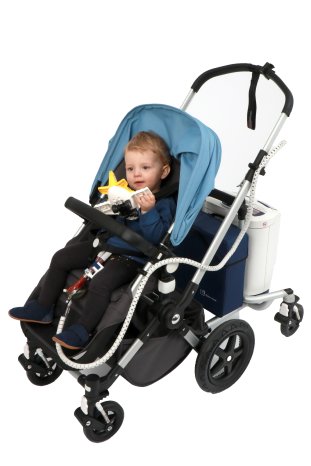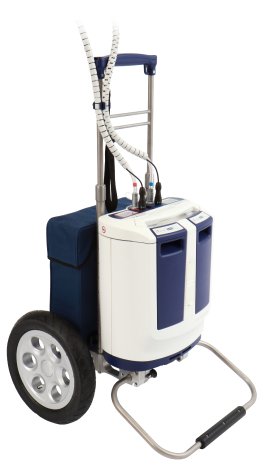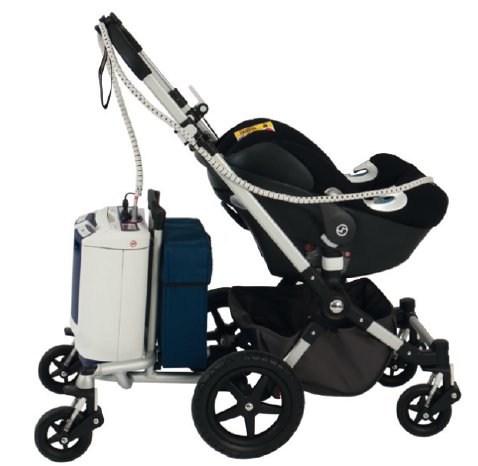When a person’s heart is no longer able to pump enough blood to the body and supply the organs with sufficient oxygen and nutrients, it is known as heart failure. Heart failure is a serious, often incurable condition - in most cases, it ends in the cardiac muscle’s pumping function failing completely. The heart only recovers in rare cases, so for most people affected by heart failure, donor hearts are their last chance at survival. Ventricular assist devices, such as the EXCOR® System by Berlin Heart, are used to bridge the months until a donor heart becomes available.
As the only system approved for pediatric use, the EXCOR® System gives children with heart failure a chance to survive that waiting period. However, children must remain in the hospital during that time, as the therapy is highly complex. Previously, they were dependent upon a stationary driving unit that was nearly one meter tall and weighed over 90 kg.
“Our youngest patients, in particular, are obliged to make the hospital their second home while waiting for a donor heart”, explains Prof. Dr. med. Felix Berger, Director of the Department of Congenital Heart Diseases and Pediatric Cardiology at the DHZB (German Heart Center, Berlin), who is one of the first cardiologists to begin using the new driving unit. “But children with heart failure are still children. The previous driving unit restricted their urge for mobility. The new EXCOR® Active gives us a whole new level of flexibility and mobility when caring for our patients”, Berger says.
“The old stationary driving unit often required a lot of logistical organization and inventive ideas. The various mobilization options and the extended battery operation time that the new driving unit offers, give young patients and their parents much more freedom,” reports Dr. Eugen Sandica, Director of the Clinic for Pediatric Cardiosurgery and Congenital Heart Defects at the Heart and Diabetes Center North Rhine-Westphalia, Bad Oeynhausen.
“Now parents can just walk around with their children! If they want to head down to the cafeteria or get some fresh air, they can just go. It’s an enormous step towards giving everyone better quality of life,” adds Prof. Dr. med. Nikolaus Haas, Director of the Pediatric Cardiology and Pediatric Intensive Care Unit at LMU Hospital Munich.
“The EXCOR® Active will allow us to open up a lot of new options, especially to children”, comments Dr. med. Ares K. Menon, CEO of Berlin Heart GmbH. “We don’t just want our systems to save their lives - we want them to be able to play, run, learn, and laugh just like other kids while they’re on the system.”
* in biventricular operation in children



